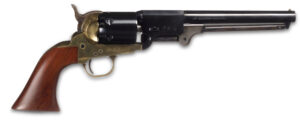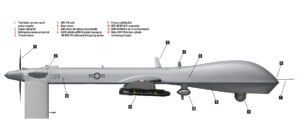Mr. Lincoln’s T-Mails: The Untold Story of How Abraham Lincoln Used the Telegraph to Win the Civil War
by Tom Wheeler Collins, 2006
The American Civil War was the first “modern” war, introducing to wartime military use the rifle, railroad and telegraph. The rifle greatly extended the lethal range of the common soldier’s weapon; the railroad permitted rapid troop movement; the telegraph made communication—previously never faster than a galloping courier—all but instant. In Mr. Lincoln’s T-Mails, Tom Wheeler focuses on modernity’s third component: President Abraham Lincoln’s use of the telegraph, initially to be informed of the fighting and, later, to try to direct its course. Wheeler’s assertion is that the telegraph, and Lincoln’s use of it, was vital to Union victory.
The telegraph was the “new” thing: In 1842 the nation had no telegraph lines; by 1860 it had 50,000 miles. Wheeler identifies Lincoln as attuned to innovation (he reports the delightful fact that Lincoln was the only president ever to have been issued a patent: for a mechanism that lifted barges off sandbars). But Wheeler’s central assertion may be overstated.
The author correctly stresses that the telegraph made civilian control possible in wartime—possible not being the same as actual. In Virginia’s Shenandoah Valley in 1862, Lincoln sent flurries of telegrams to Union detachments trying to trap Confederate General Stonewall Jackson. The effort failed, not for lack of communication, but because the Union commanders lacked Jackson’s resolution.
Wheeler captures Lincoln’s isolation and his efforts to use the telegraph to overcome it. He quotes one Lincoln secretary: “His thoughts by day and anxiety by night fed upon the intelligence which the telegraph brought.” At times, Lincoln virtually camped out in the War Department’s telegraph office, a short walk from the White House. Thus, in August 1862, with the principal Union Army in Virginia facing possible collapse, Lincoln wired the query: “What news from direction of Manassas Junction? What generally?” The responses were hardly reassuring in their content or in the fact that the reports came from “a surgeon who was captured and released” and “two ambulance drivers who came from Centreville.”
What is most interesting here is the view of Lincoln that emerges. Lincoln was, simply, a better military strategist than his early generals, who were ever reluctant to act. Lincoln’s messages show a grasp of essentials, clarity and, usually, tact. When, however, General George McClellan, the slowest of the slow, sought postponement because his horses were fatigued, Lincoln wired him, “Would you pardon me for asking what the horses of your army have done since the battle of Antietam that fatigues anything?”
After Ulysses Grant was appointed top Union commander, Lincoln told him— probably accurately—that he had never wished to run the war, but had been drawn into doing so by his generals’ unwillingness to press the business.This he trusted Grant to do. If there is a lesson in this study, it’s that while wars may be framed by technology, they are not won without leadership.
Originally published in the June 2007 issue of American History. To subscribe, click here.




